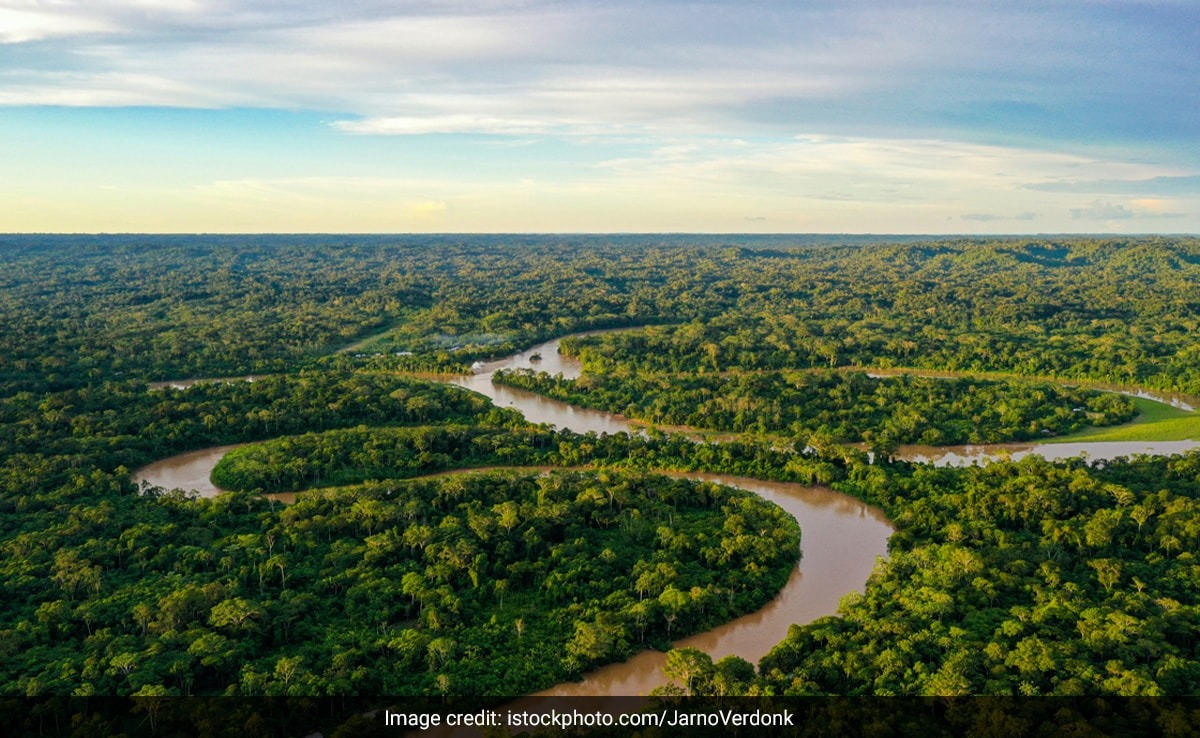Over 100 Dolphins Dead In Amazon As Water Temperature Nears 40 Degrees Celsius

In the past seven days, the Brazilian Amazon has witnessed a distressing event: More than one hundred dolphins were discovered lifeless in Lake Tefe. This tragic incident coincides with an unprecedented drought and extraordinarily high water temperatures, surpassing 102 degrees Fahrenheit (39 degrees Celsius) in some areas, CNN said.
The alarming discovery was reported by Mamiraua Institute, a research institution supported by the Brazilian Ministry of Science. The institute note that such a high number of dolphin deaths is highly unusual, the outlet further said in its report.
This unsettling development is expected to add to the concerns of climate scientists who are increasingly worried about the impact of human activities and severe droughts on this ecologically vital regionRead More : The world in a drop of water: DNA tool transforms nature tracking "It's still early to determine the cause of this extreme event but according to our experts, it is certainly connected to the drought period and high temperatures in Lake Tefe, in which some points are exceeding 39 degrees Celsius," CNN quoted the Brazilian institute as saying.
The extreme weather has led to depleted water level in the Amazon, which is home to the world's largest tropical rainforest. It covers over 5.5 million square kilometres, which is roughly the size of Australia.
A drought in the region is affecting 100,000 people. Boats can still travel on sections with severely depleted water level, but the Brazilian government is setting up a task force to help those who rely on the river as transport route for food and other essentials.
Experts are trying to relocate surviving dolphins by transferring them from lagoons and ponds to the main river where the water is cooler, CNN further said.
But some environmentalists have raised concerns. "Transferring river dolphins to other rivers is not that safe because it's important to verify if toxins or viruses are present before releasing the animals into the wild," Andre Coelho, a researcher at the Mamiraua Institute, told the outlet.
Below average water levels have been reported in 59 municipalities in Amazonas State.
The alarming discovery was reported by Mamiraua Institute, a research institution supported by the Brazilian Ministry of Science. The institute note that such a high number of dolphin deaths is highly unusual, the outlet further said in its report.
This unsettling development is expected to add to the concerns of climate scientists who are increasingly worried about the impact of human activities and severe droughts on this ecologically vital region
The extreme weather has led to depleted water level in the Amazon, which is home to the world's largest tropical rainforest. It covers over 5.5 million square kilometres, which is roughly the size of Australia.
A drought in the region is affecting 100,000 people. Boats can still travel on sections with severely depleted water level, but the Brazilian government is setting up a task force to help those who rely on the river as transport route for food and other essentials.
Experts are trying to relocate surviving dolphins by transferring them from lagoons and ponds to the main river where the water is cooler, CNN further said.
But some environmentalists have raised concerns. "Transferring river dolphins to other rivers is not that safe because it's important to verify if toxins or viruses are present before releasing the animals into the wild," Andre Coelho, a researcher at the Mamiraua Institute, told the outlet.
Below average water levels have been reported in 59 municipalities in Amazonas State.
Source: www.ndtv.com
